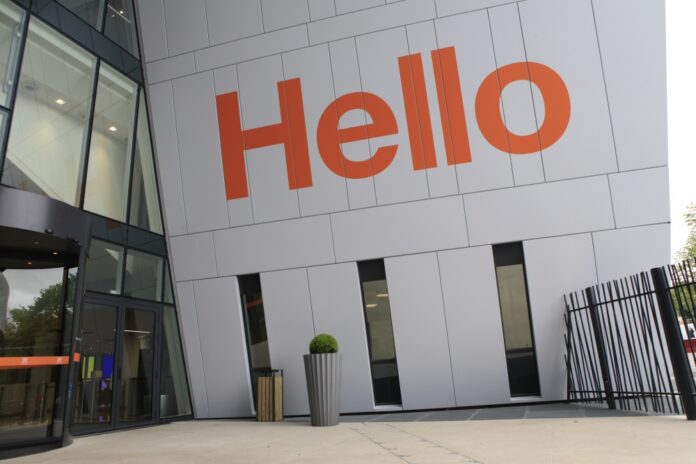LACROIX Group is running 5G to test the benefits at its electronics division’s plant at Montrevault-sur-Evre, France.
When the operator announced its 5G strategy back in April 2019 at the Orange Business Summit, it named and shared the stage with companies it would work with to design and deploy industrial 5G solutions.
LACROIX Group was one of those companies. It is a medium-sized French enterprise whose factory at Montrevault-sur-Evre specialises in the design and production of electronic embedded systems and industrial connected objects. The company is investing massively in an new Industry 4.0 plant as part of its Symbiose transformation project.
A modular approach
LACROIX Electronics is looking to 5G to help it transform to Industry 4.0, that is develop the concept of a modular factory and improve the technical management of buildings.
Orange designed and deployed an indoor 5G network based for LACROIX’s plant, using four Ericsson Dot 5G antenna, broadcasting at “experimental” frequencies to cover the production space.
Orange runs a virtualised network core, distributed between Orange’s premises and the plant to enables local processing and data security, as well as network performance and efficiency, suitable for LACROIX Electronics use cases.
More adaptable
LACROIX Electronics wants to co-innovate with Orange to make the plant more adaptable as reliable wireless connectivity offers greater flexibility in the configuration of machines on the factory floor.
The idea is the organisation of the machines could be modified according to the type of production needed.
It is hoped that 5G will also allow for quality control of production, for example, by taking high-resolution photos of electronic processes, and real-time verification of the quality of welds and the presence of components.
Taking and sending images in real time can be combined with machine learning to improve detection algorithms and ensure no errors in the batches of products or readjust a machine is necessary.
More efficient plants
Orange and LACROIX Group are also testing the potential of 5G’s contribution for better technical management of buildings and infrastructure. The experiment is carried out in a controlled environment, where electronic cards are produced for the aviation sector.
The assembly of these components requires strict temperature and hydrometric regulation to prevent damage.
LACROIX Environment, another subsidiary specialises in water and energy network management, provides connected equipment to receive real-time measurements. Optimising settings prevents excessive energy consumption.
5G will also support the increasing number of sensors in the plant – up to 1 million sensors per km² (in line with the 3GPP 5G standard). The increase in sensors will make it possible to calculate the carbon footprint and power consumption required to manufacture each product.
Encouraging visitors
Orange enterprise customers will be able to visit the LACROIX Electronics plant during the experimental period to see the benefits of 5G for Industry 4.0 in action.
“We are very pleased to collaborate with LACROIX Group as part of this digitised, human and environmentally friendly factory of the future. 5G will be a digitization facilitator for Industry and a competitive lever for both the economic environment and all enterprises, regardless of size or location,” said Helmut Reisinger, CEO Orange Business Services.
“LACROIX Group’s teams are mobilized and proud to be part of the 5G development for the industrial sector. The French electronics industry is changing, and our industry needs to be able to rely on wireless technology that can cope with the massification of data at our plants.
“This data is the information that will enable us to carry out predictive maintenance or provide reliable and secure information to our customers in real time. This co-innovation feeds our Smart Industry strategy and our electronic factory of the future – Symbiose – which will be launched in late 2021,” said Vincent Bedouin, CEO LACROIX Group.



